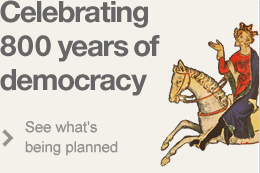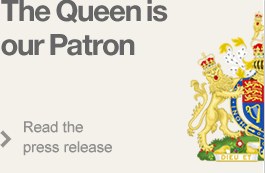This section will feature some of the bishops who were part of the events leading up to the sealing of Magna Carta, and who were also an important part of the events that followed.
Magna Carta Bishops
The office of bishop in the 1200s was an important position: bishops were responsible for the administration of their dioceses and the souls under their care, but they were also great landholders with responsibilities to the kingdom. They provided military service, served as diplomats, offered the king counsel, and were often active in politics. They came from various backgrounds: some had been monks, some had been promoted from the ranks of the king’s administrators, and others had been trained to a high level in the arts and theology. The English bishops, led by the archbishop of Canterbury, were also important figures in the leadership of the Catholic Church. The Church was headed by the Pope, who normally resided in Italy. He was not only responsible for the spiritual direction of the people of Western Christendom, but also acted as a judge in disputes between kings, as well as disputes between kings and their people. The English bishops were thus part of a major multi-national organisation with broad powers and diverse responsibilities.
Although most bishops most of the time served both their own kingdom and the universal Church without difficultly, occasionally they were put in a difficult position when a dispute arose between king and pope, as happened when King John and Pope Innocent III quarrelled seriously about the appointment of Stephen Langton as archbishop of Canterbury. Several English bishops were involved in the peace negotiations at Runnymede in 1215, and thus probably helped to compose Magna Carta. They were interested in securing liberties for the Church, but also in ensuring the good government of the kingdom and preventing civil war. In the years that followed, and throughout the thirteenth century, the bishops proved to be vigorous supporters of Magna Carta and, from 1225, acted as the Charter’s enforcers.
The bishops listed below were people who were direct witnesses to these changes, and often involved in the changes themselves. Click the names to see dedicated articles about the bishops’ lives, written by Dr. Sophie Ambler of the University of East Anglia.
Featured Article
I am delighted to have been asked to speak to you this evening. This is an event which marks a number of important themes. As we have heard, we celebrate a major anniversary – the 50th anniversary of the Magna Carta Trust...
Read on...Recent Articles
- Magna Carta's American Adventure
- 800th anniversary of Bristol...
- Bristol 800 concert and...
- Emancipation and Magna Carta
- Terrorism and Tolerance -...
- Magna Carta
- Magna Carta Benches mark...
- ABA Magna Carta Memorial...
Stay updated
If you would like to keep informed about the work of the Magna Carta Trust and our partners, please sign up to the newsletter below.
Become a Supporter
There are a number of significant supporter opportunities. Register your interest early to ensure the widest range of options.
Find out more




